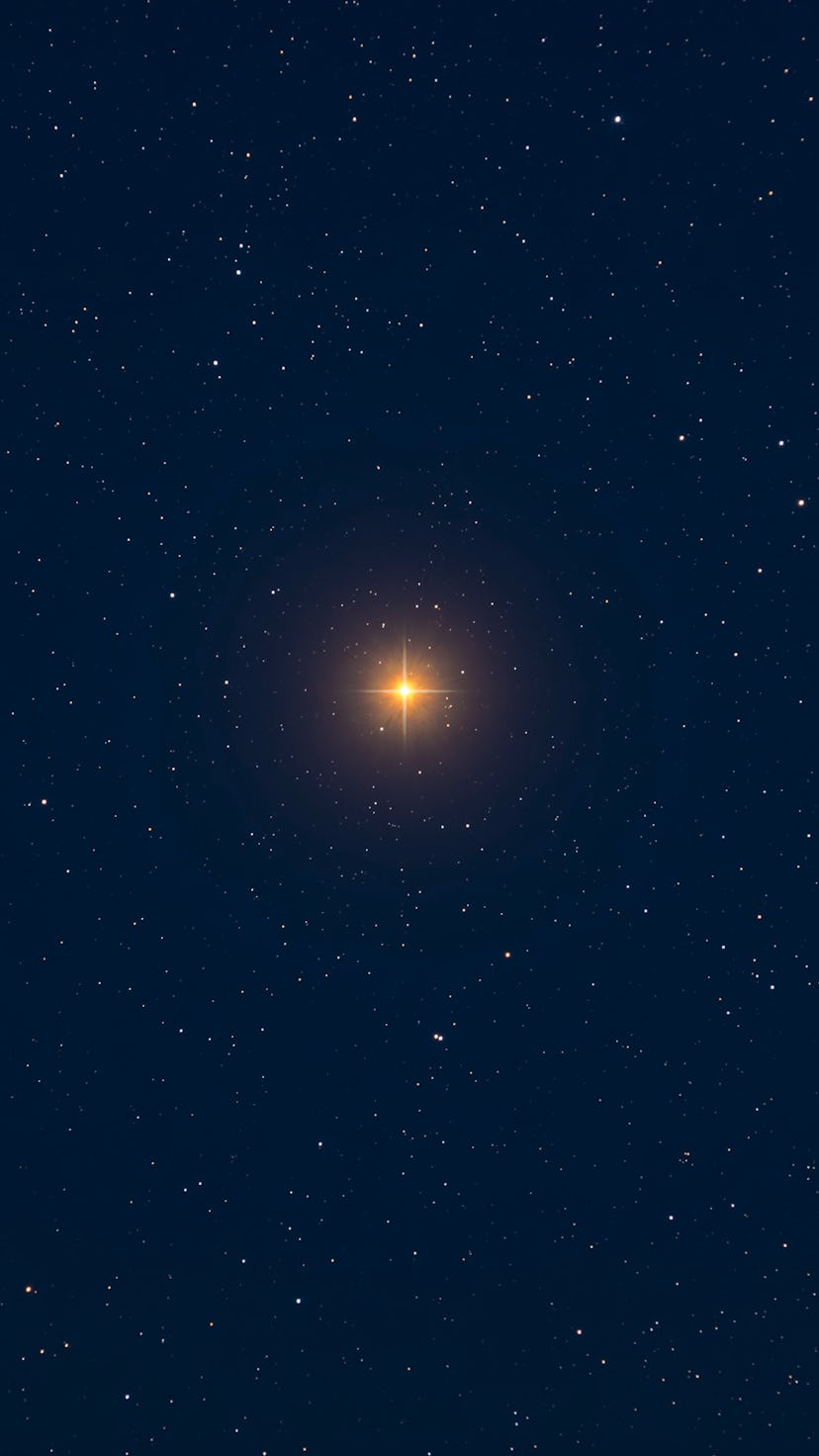The Ultra-Rare Celestial Betelgeuse Eclipse Is Imminent — Don’t Miss It
On Monday, December 11th in the evening hours, a very brief and rare eclipse of Betelgeuse, one of the brightest stars, will darken our skies.

It’s time to make a run to the grocery store for some hot chocolate because there’s an incredibly rare celestial eclipse happening tonight, and you won’t want the cold weather stopping you from seeing the very cool sight when one of the brightest stars in our sky suddenly, and briefly, disappears. Here’s what you need to know, including when and how to watch it.
What rare celestial eclipse is happening in December?
The rare celestial eclipse that hits our skies on Monday, December 11th will involve Betelgeuse — an incredible star that’s one of the largest and brightest in our sky, Space.com explains. This star is known for its very distinctive red color, and being one of the shoulder anchor points of the Orion constellation. In this super rare event, the star will dim or disappear in our skies thanks to an asteroid.
What happens during the Betelgeuse eclipse?
According to EarthSky.org, the Betelgeuse will dim or disappear, creating a unique eclipse due to an asteroid passing in front of the star, blocking the Betelgeuse from our view here on Earth.
The asteroid that will be getting in the way is known as the 319 Leona, which usually orbits around the sun between Mars and Jupiter, according to Space.com. When the asteroid falls between the star and Earth, it will make that bright red star we've always seen in our skies disappear for a brief time. The more technical term for what is happening in an occlusion.
Why is the Betelgeuse eclipse ultra-rare?
When we say this eclipse is super unique, we mean it. Experts have called this upcoming event an "extraordinary and unique opportunity" to research more about this star, which has been a huge interest for those in the astronomy field because of its "unusual dimming patterns over the past four years," Earth.com shares.
“These kinds of occultations are very useful to constrain the shape of the asteroid involved,” Gianluca Masi, director of the Virtual Telescope Project, said. And it will give an interesting glimpse into what life would look like if the Betelgeuse ever disappeared for good. “For a very short time, we will see the legendary Orion constellation without its famous, orange shoulder,” referencing the eventual supernova explosion of Betelgeuse.
When will the Betelgeuse eclipse happen, and for how long?
If you want to catch this really incredible event, you'll have to be good and ready — it’s not going to last long. (That might make it about the perfect viewing opportunity for your kids if you're in the path of visibility. Almost no patience is required, just perfect timing!)
Astronomers, who have been tracking the trajectory of the asteroid, anticipate the occlusion to happen at 8:17 PM EST on Monday, December 11th and will only last for up to 12 seconds.
How do I watch the Betelgeuse eclipse?
If you're in one of the areas where the eclipse is likely to be viewable — for American viewers, you basically have to be in southern Florida to catch it — you should be able to see it happen with the naked eye, but having a telescope or binoculars will definitely make it easier to see. The path of the eclipse is from central Mexico to southern Florida to Europe and Eurasia, per Space.
If you’re in the path, you will want to make sure there's a clear sky and you're away from bright city lights, so the darker the location, the easier you should be able to see it. To find the best direction to look based on where you live, you can find the most accurate details on OW Cloud.
If you live outside the viewing area — and let’s face it, you probably do — the Telescope Project is hosting a livestream event. The event is scheduled to begin at 8 pm EST on December 11, which you can view here.